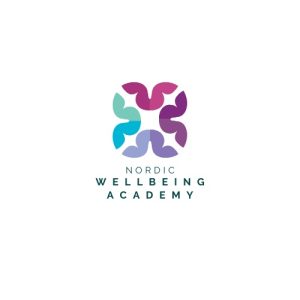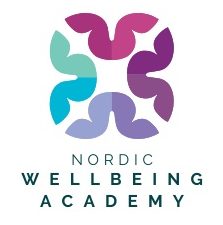Forgotten Fish – Erasmus+ project
Cool news – a new project to explore the use of Forgotten Fish
Forgotten fish are species underused by industrial fishing due to their small size or failure to reach a threshold for commercial trade, thus being underused in mass consumption and catering. Usually caught accidentally, they are discarded, contributing to waste and a lower respect for marine biodiversity (WWF, “The World’s Forgotten Fishes”, 2021).
Even if they are forgotten by industrial fishing, these could be an essential resource for artisanal fishing and environmental conservation since they can be caught in limited periods of the year. Due to the rapidity of their reproductive cycle, they are not at risk of extinction. However, the limited awareness and knowledge of forgotten fish lead to their underutilization and undervaluation in catering. Consequently, catering operators and VET centers are unfamiliar with these species and either do not use them or lack adequate synergies with artisanal fishing to make efficient and innovative use of them in catering.
The objectives of this project are:
A. Increase the knowledge and skills of catering operators in the use of forgotten fish.
B. Foster synergies between restaurateurs and artisanal fishermen in the use of forgotten fish.
C. Promote the use and promotion of forgotten fish in catering.
In this project we partner with Italian and Greek partners, in a consortium led by the amazing restaurant in Marstang Mad&Vin from Marstal, Ærø in Denmark – exploring practices from 2024-2026.
New Erasmus+ project on the way
Mental health – stress management for first responders through augmented reality in disasters
As a new experience, we’ll be part of a French-led consortium to explore better pathways towards mental health in a very challenging workplace – disaster, accidents, and crisis. With 8 other partners from France, Cyprus, Greece, Hungary, Italy, and Spain, we’ll be able from 2024-2026 to not just explore and develop better practices, but also integrate new technology for relief, awareness, management, and possibly rehabilitation in the MentaStress project.
Our project will look nothing like the image of minions – but like them, we humans are simply trying to do our best in challenging circumstances. We’ll be back with more asap.
Group Relations – Italian Style

NWA participated in the 15th edition of the ECW Conference (Energy, Creative Collaboration, and Wellbeing in Organisations) in Pasturo Italy in June 2024 – a gathering organised by the Il Nodo Group.
(see https://www.ilnodogroup.it/en/event/ecw-2024-group-relations-conference/)
The event was a very insightful experience into the Tavistock Method also in addition to a combination of sensory and engaging exercises in the beautiful landscape near Lake Como.
NWA learned a lot about diversity of cultural and organisational perceptions regarding group relations in the very global gathering of participants (hailing from China, Kazakhstan, Iran, UK, Denmark, Colombia, USA, Finland, Estonia, Russia, France, Australia, and Italy of course) – besides also sharing a lot of experiences across countries in terms of food, song, dance, and more.
European Network on Social Innovation
NESEI – Network of European Social Entrepreneurs and Innovators launched!
NWA participated in a great event in Brussels April 2024 to connect organisations, minds, and ideas on social progress. More to come from the network – read more (and join!) here.

Engaging in Horizon Europe
In 2024 we are also working towards integration of a Nordic Wellbeing approach into the larger European research framework called Horizon Europe. The programme supports thousands of projects on all kinds of important issues for the future of Europe and Europeans, but obviously this also means that wellbeing in practice is very important.
The NWA team has a lot of previous experience from European research and collaborative projects – from FP5 to Horizon 2020 and now also Horizon Europe, and are also drawing upon these experiences to help form new consortia and ideas.
This covers projects on promotion of a range of diverse topics like healthy diet, food safety, food education, cancer, child obesity, and remote working arrangements.
Read more via

Trust and Transformation
Representing the Nordic Health 2030 Movement and the Danish Committee for Health Education, Lars Münter participated in the High-Level WHO/Europe Conference for the Tallinn Charter 15th Anniversary Health Systems Conference: Trust and transformation – resilient and sustainable health systems for the future.
As part of the debate panel for Public Health Leadership, Lars Münter highlighted the powerful role that health leaders have as changemakers for healthy transformation beyond the health care system.
Read more about the conference.

Erasmus – sharing experiences
In 2023 we began considering how different uses of the Erasmus+ framework might be a method to share Danish experiences across borders and facilitating knowledge sharing between sectors and silos.
The Erasmus+ programme enables thousands of projects for professional knowledge sharing, but also enable interpersonal upskilling. Read more about the almost endless possibilities, results, and tools here.
We will be trying to explore new ideas, given our previous experience from projects like:
Dem@Mentoring (supporting informal carers for people with dementia)
ECARIS (supporting informal carers for kidney patients)
RECADE (building a guide for rehabilitiation)
Art4Me (exploring uses of art and creativity for mental health)
INFOCARE (exploring digital support for people with dementia)
Well@SME (building a digital platform to support mental health at SME workplaces)
eHealth4Cancer (exploring digital tools for cancer support)

Environment and health – a transformation overdue
In 2023 EuroHealthNet organised a debate during the WHO 7th Ministerial Conference on Environment and Health in Budapest. The conference connected ministries and organisations across Europe – indeed globally – to discuss the important interaction of environmental changes on health and health systems; but vice versa also the important impact and potential the health systems have for environment and the policies that connect the two areas.
Lars Münter represented Danish and Nordic ideas from his work in the Danish Committee for Health Education, the Danish Council for Better Hygiene, the Self-Care in Europe Initiative, and the Nordic Health 2030 Movement.
Read more about the conference here.

Communities and people
In 2019, a strong consortium of Nordic health stakeholders created a joint vision paper – the Nordic Health 2030 report – a result, that clearly shows a need for a different balance and focus in health and healthcare to prioritise the role and value of citizen involvement, engagement, and action to deliver systemic health and wellbeing in a future-fit and sustainable society.
In 2020-2022 the European Health Futures Forum executed an extensive Three Horizons analysis on the future of European health and the role of both the healthcare sector and skills in future health professionals. The study clearly showed the importance of nurturing local social activity and connectivity to enable a wider system change towards wellbeing.
These two processess and reports was a basis for building the Nordic Wellbeing Academy (NWA) and to practically explored how to best deliver hands-on mindsets, changes, and hope for people across the Nordics and beyond. And how to better leverage existing and new concepts and ideas into practical social or physical actions that can transform lives.










